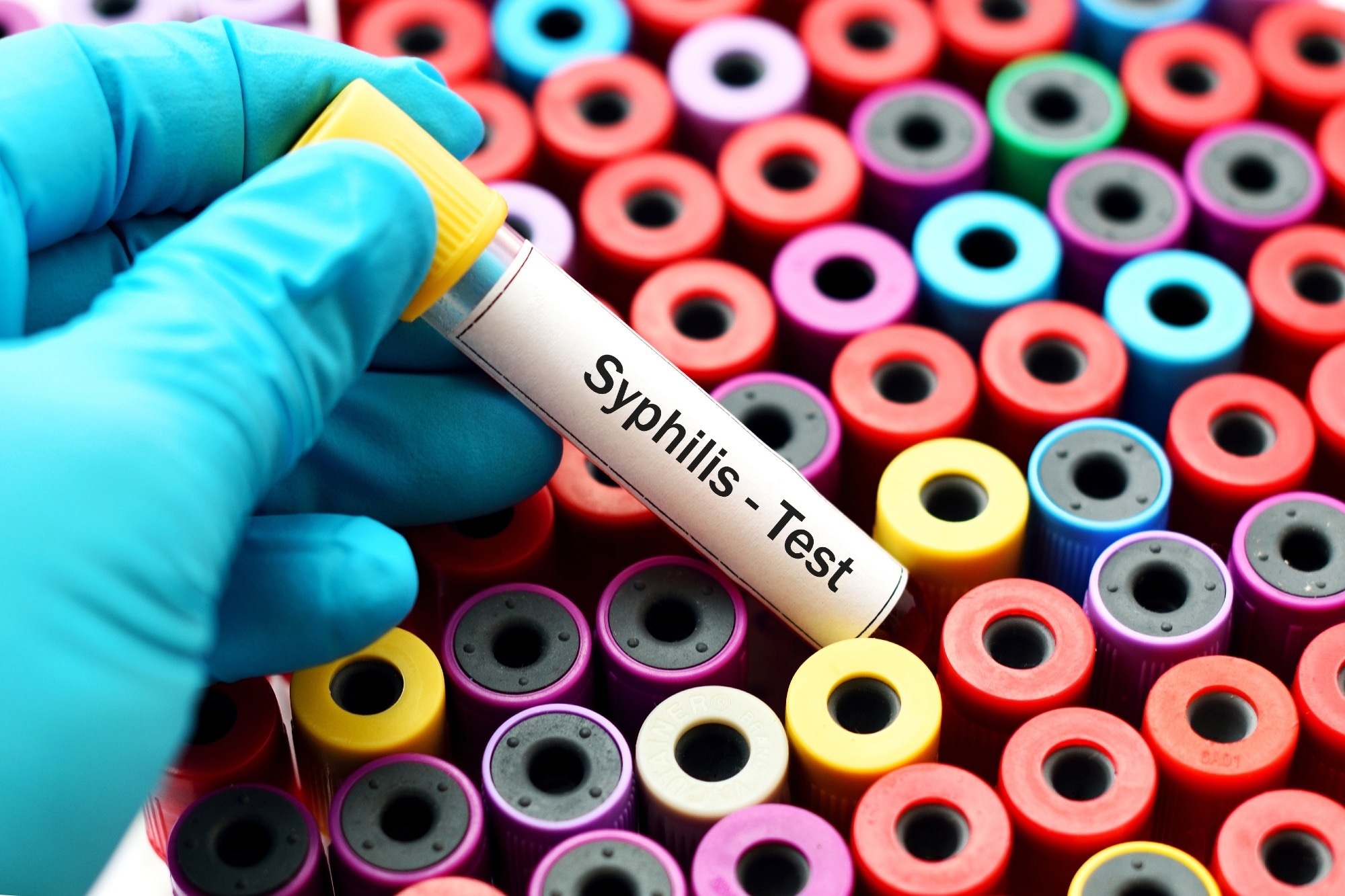[ad_1]
In a latest examine revealed in The Lancet Public Well being, researchers carried out a meta-analysis on the utility of syphilis self-testing (SST).
 Examine: The position of syphilis self-testing as a further syphilis testing method in key populations: a scientific overview and meta-analysis. Picture Credit score: JarunOntakrai/Shutterstock.com
Examine: The position of syphilis self-testing as a further syphilis testing method in key populations: a scientific overview and meta-analysis. Picture Credit score: JarunOntakrai/Shutterstock.com
Background
Syphilis, a sexually-transmitted Treponema pallidum an infection, is a worldwide epidemic that predominantly impacts males having sexual activity with males (MSM), intercourse staff, and transgender girls.
Entry to healthcare amenities is hampered by financial, structural, and social constraints, resulting in delayed identification and administration of syphilis, persevering with unfold, and growing infection-associated morbidity and mortality.
Discrimination, stigma, prior damaging healthcare experiences, gender-based abuse, confidentiality considerations, reluctance to disclose sexual habits, and restricted accessibility to well being amenities all contribute to sexually transmitted ailments (STD) follow-up losses and low testing charges.
SST has the potential to develop testing and remedy protection equally as self-tests for human immunodeficiency virus (HIV), extreme acute respiratory syndrome coronavirus 2 (SARS-CoV-2), and hepatitis C virus (HCV) have been proven to do.
In regards to the examine
Within the current meta-analysis, researchers reviewed the scientific proof on SST regarding its usability, accuracy, acceptability, reactivity, uptake, affiliation with confirmatory testing, administration, care providers for sexual well being, opposed occasions or social hurt, cost-effectiveness, and execution components.
Databases equivalent to Embase, MEDLINE, Scopus, Internet of Science, and CINAHL have been looked for research revealed between January 1, 2000, and October 13, 2022. Authentic analysis on fast assessments for syphilis, together with twin syphilis-HIV testing, was included.
As well as, 4 digital STD or HIV convention databases [conferences of the International acquired immunodeficiency syndrome (AIDS) Society, United States Centers for Disease Control and Prevention (US CDC), International Union Against STDs, and Retroviruses and Opportunistic Infections] have been reviewed.
The World Well being Group (WHO) analysis group for human immunodeficiency virus self-testing tips’ updates offered information on syphilis-HIV twin testing.
Two researchers independently carried out information screening and extraction, and discrepancies have been resolved by a 3rd researcher. Random-effects modeling was carried out to find out the pooled share of people provided syphilis self-testing kits who underwent testing.
Bias dangers have been analyzed utilizing Cochrane’s Danger of Bias Device and the Johanna Briggs’ Institute (JBI) Important Appraisal Device for randomized managed trials (RCTs) and non-RCTs, respectively, and certainty of proof utilizing the GRADE method. SST contains assessments carried out by people who accumulate specimens, carry out the assessments, and interpret the outcomes. Descriptive statistics have been used to summarize examine traits.
Outcomes
In complete, 40,499 information have been recognized, of which 11 have been eligible, together with seven research performed in america of America (USA, one examine), China (5 research), and Zimbabwe (one examine). Among the many included research, two recruited people from 2015 to 2017 and 9 recruited people from 2018 to 2020.
4 research documented information from MSM people, and 5 utilized twin SST-HIV twin assessments. All of the included cross-sectional analytical research had low bias dangers. Relating to proof certainty, the staff discovered very low proof certainty for opposed occasions and social hurt; low confidence for reactivity, usability, and linkage to therapy and care; and excessive certainty for uptake.
Utilizing info from three observational-type research and one RCT, the pooled share of people who underwent SST testing was 88.0%, with medium-level heterogeneity within the examine findings (I² of 46.0%). Not one of the research offered info on SST specificity or sensitivity.
Supplier and consumer SST preferences have been excessive, with SST facilitators together with privateness, comfort, autonomy, fast outcomes, diminished contact with well being amenities, time financial savings, and belief in hematological testing, with people able to self-testing appropriately.
Research performed in China reported the best uptake charges (roughly 90%) and that SST was cheaper at a person stage than facility-based assessments.
Nevertheless, there have been a number of reported challenges, together with finger prick necessities for blood pattern assortment, sophisticated and prolonged procedures (involving removing of take a look at parts from the bundle, pipetting buffer, and understanding SST directions), technical issues associated to telephone use (e.g., SST scanning), and end result interpretation difficulties.
SST implementation boundaries included lack of information (together with SST unawareness and package and care accessibility areas), pattern assortment and end result interpretation challenges, poor STD consciousness, and privateness, value, and take a look at accuracy considerations.
A examine reported that 30 out of 174 males and 9 out of 76 feminine sexual staff have been pressured to carry out SST resulting from verbal abuse, relationship termination, violent threats, and psychological stress.
Conclusion
Total, the examine findings develop on self-testing information for varied illness areas and present that SST can attain uncared for people.
SST implementation proved attainable and acceptable; therefore, SST could also be utilized as a supplementary syphilis testing technique.
Nevertheless, since SST specificity and sensitivity information have been unavailable, additional analysis is required to develop acceptable methods and insurance policies for delivering and scaling SST.
[ad_2]
